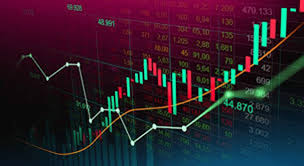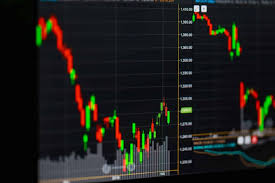
Forex trading is rapidly gaining popularity among investors seeking to diversify their portfolios and explore new financial opportunities. The key to successful trading often lies in choosing the right broker. Whether you are a seasoned trader or just starting, an effective broker can significantly enhance your trading experience. In this article, we will explore the essential criteria for selecting the best broker for forex trading Forex Broker Register, ensuring that you have all the information needed to make an informed decision.
Understanding Forex Brokers
Forex brokers play a crucial role in the foreign exchange market by acting as intermediaries between traders and the liquidity providers. They provide trading platforms that allow traders to buy and sell currency pairs. With the rise of online trading, the Forex brokerage industry has become highly competitive, which means that brokers are constantly looking to offer better services, lower fees, and improved trading experiences.
Key Factors to Consider When Choosing a Forex Broker
When selecting a Forex broker, there are several factors you must consider to ensure that you choose a reputable and reliable partner:
1. Regulation and Trustworthiness
One of the most critical factors to consider is the regulation of the broker. Regulated brokers are more likely to adhere to industry standards and provide a higher level of protection for your funds. Look for brokers regulated by well-known authorities such as the Financial Conduct Authority (FCA) in the UK, the Commodity Futures Trading Commission (CFTC) and National Futures Association (NFA) in the US, or the Australian Securities and Investments Commission (ASIC). These regulatory bodies ensure that brokers operate fairly and transparently.
2. Trading Costs
The cost of trading can significantly impact your overall profitability. Look out for the broker’s spreads, commissions, and any additional fees. Some brokers offer zero-commission trading in exchange for wider spreads, while others may charge commissions based on your trading volume. It is essential to evaluate these costs and determine which broker offers the most competitive rates for your trading style.
3. Trading Platforms and Tools
The trading platform you use can affect your trading effectiveness and experience. Most brokers offer proprietary platforms or popular trading platforms like MetaTrader 4 (MT4) or MetaTrader 5 (MT5). Evaluate the features of each platform, including user-friendliness, availability of analytical tools, and charting capabilities. Make sure the platform has a mobile version so you can trade on the go.
4. Variety of Currency Pairs
The best broker for Forex trading should provide a diverse array of currency pairs. While major pairs like EUR/USD and USD/JPY are essential, being able to trade minor and exotic pairs can present additional trading opportunities. Ensure that the broker offers the specific pairs that align with your trading strategy.

5. Customer Support
Effective customer support is crucial, especially when you encounter issues or have questions regarding your trading account. Look for brokers that offer responsive support through multiple channels, such as live chat, email, or phone. Check the availability of support during market hours to ensure assistance is always accessible.
6. Account Types and Leverage
Many brokers offer various account types tailored to different trading styles and experience levels. Some accounts may require higher minimum deposits, while others are designed for beginners with lower thresholds. Understanding the leverage options available is also essential. While higher leverage can lead to more significant profits, it also comes with increased risk. Choose a broker with leverage ratios that align with your risk tolerance.
7. Educational Resources
The best brokers provide resources that help traders improve their skills. Look for brokers that offer educational materials such as webinars, tutorials, or articles on Forex trading concepts. Access to demo accounts is also beneficial, allowing you to practice trading without risking real money.
8. Reputation and Reviews
Online reviews and testimonials from other traders can provide insights into a broker’s reputation. Research forums, review sites, and social media to gather opinions about different brokers. Pay attention to feedback related to deposit and withdrawal processes, customer support, and overall satisfaction.
Top Forex Brokers for 2023
Based on the criteria outlined above, we've compiled a list of some of the best Forex brokers for 2023. While there are many more brokers out there, these stand out for their commitment to providing excellent service:
- Brokers A: Regulated by FCA, offers competitive spreads, comprehensive educational resources, and a user-friendly trading platform.
- Brokers B: Known for its innovative trading platform, strong customer service, and a wide range of currency pairs.
- Brokers C: Offers low commission rates, multiple account types, and powerful analytical tools, making it ideal for serious traders.
Conclusion
Choosing the best broker for Forex trading is a crucial step towards trading success. By carefully considering the factors mentioned in this article—regulation, trading costs, platforms, and customer support—you will be much better equipped to make an informed decision. Always take your time to research and compare different brokers before committing to one. Remember that the right broker can significantly impact your trading experience and profitability.
